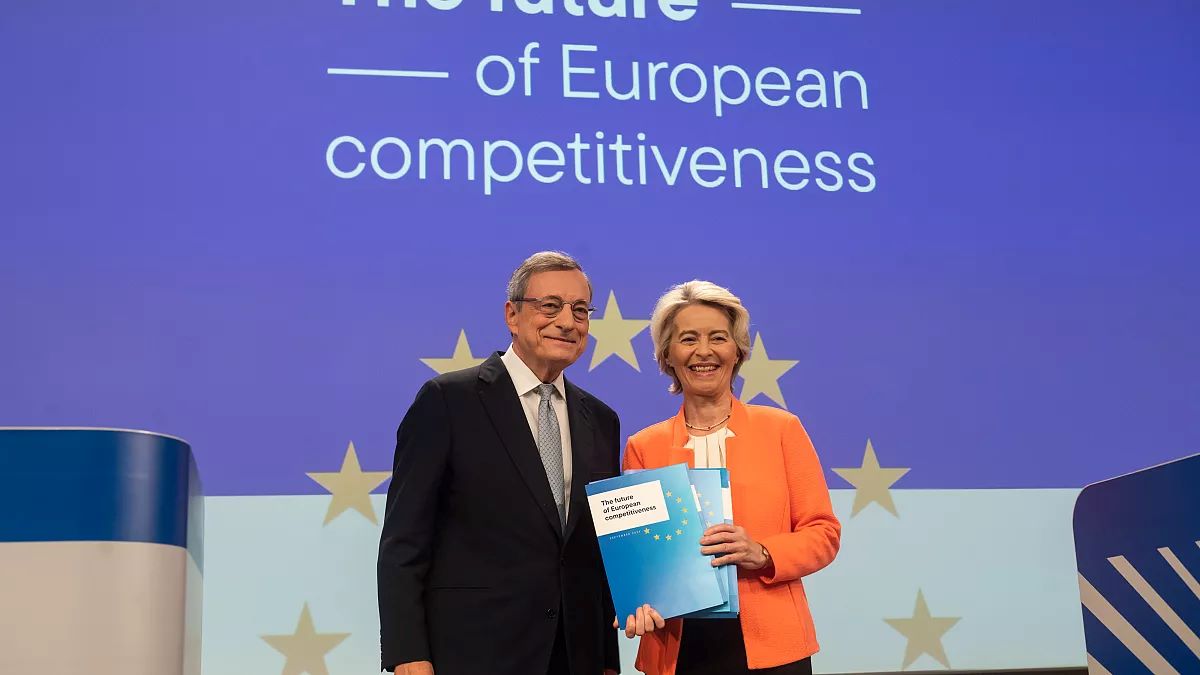
On September 9th, the European Commission published the so-called Draghi Report, a highly technical document outlining the challenges the European Union will face in the coming years, while highlighting the opportunities for change these challenges may generate. Initially, the publication was scheduled before the European elections but was postponed to avoid influencing the electoral outcome and the subsequent appointment of the new President of the Commission. In this article, we aim to provide a summary of the report’s content, divided into five main areas. The report, The Future of European Competitiveness – A Competitiveness Strategy for Europe, curated by Mario Draghi, offers a critical analysis of the European Union’s position in the global context compared to emerging superpowers such as the United States and China. Despite its leadership in areas like the rule of law and life expectancy, the EU faces significant challenges, including stagnant economic growth and declining geopolitical influence. The report calls for structural and systematic change in key sectors to ensure that Europe can maintain its competitiveness in the long term.
The Five Challenges and Opportunities for the EU
The issues and challenges highlighted in this document focus on five key areas: the technology market and artificial intelligence, energy and the ecological transition, military defense, future investments, and the new financial framework. The final area discussed is the need for deep structural reforms within the EU, so it can become faster and more dynamic in responding to global challenges.
Dilapidation of Digital Potential
Although Europe is at the forefront of crucial technological sectors like robotics and artificial intelligence (AI), it struggles to turn these skills into a stable and long-term engine of economic growth. The continent is held back by rigid bureaucracy, a lack of large-scale investments, and a less dynamic entrepreneurial ecosystem compared to the United States. Only four of the world’s top fifty tech companies are European, and many start-ups and SMEs prefer to move abroad, attracted by more favorable markets for growth, particularly in the U.S.
Energy Dependency and Decarbonization Challenges
The war in Ukraine has heightened the EU’s energy vulnerability, with energy prices skyrocketing. This scenario has underscored the urgent need to accelerate the transition to renewable energy sources. The United States and China have already taken the lead in the clean energy sector, fully exploiting their resources, while Europe risks falling behind. The report calls on the EU to create an integrated strategy for securing raw materials and developing sustainable technologies to reduce reliance on imports and ensure energy security.
Weakness in the Defense Sector
Traditionally, the EU has invested little in defense, relying on its allies for security. However, with growing geopolitical instability and emerging threats, the report stresses the need for autonomous industrial defense capabilities. It proposes a massive investment plan to build a strong European defense industrial base, enabling the EU to act independently and protect its interests.
Need for Increased Investments and a New Financial Framework
To tackle global challenges and stimulate economic growth, the EU must double its budget allocated to innovation and industry. The report suggests simplifying the process of accessing funds and reducing the regulatory complexity that often slows down the distribution of financing. A new Multiannual Financial Framework (MFF) will be essential to support research, innovation, and development, providing Member States and companies with the tools they need to compete globally.
Structural Reforms
Currently, the main European decision-making mechanisms are based on consensus and unanimity. This makes the EU too slow and cumbersome, particularly when rapid decision-making is needed. The report, for this reason, proposes adopting Qualified Majority Voting (QMV) in the Council’s decision-making process, overcoming the current unanimity system that allows individual states to block crucial decisions. This reform would allow the EU to move more swiftly and adopt more effective policies in response to global challenges.
A Call for Action and EU Cohesion
This report represents a clear wake-up call for the European Union and its institutions. It can be interpreted as a call to action from a pragmatic statesman like Mario Draghi. The EU must show more cohesion than ever before and begin to move decisively, adopting a gradual approach to strengthen its competitiveness, especially in the sectors listed. Only by doing so can it avoid being overtaken by the other two great geopolitical powers, the United States and China.